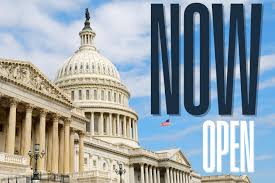How Much of Your Paycheck Can Be Garnished for a Defaulted SBA Loan?
If you've defaulted on an SBA (Small Business Administration) loan, it’s important to understand the potential financial consequences, including wage garnishment. Wage garnishment can be a serious burden, affecting your paycheck and financial stability. This article provides a breakdown of how much of your paycheck can be garnished if you default on an SBA loan, along with the legal limits imposed by federal law.
What Is Wage Garnishment?
Wage garnishment occurs when a creditor, in this case the SBA, obtains an order to deduct a portion of your earnings directly from your paycheck to settle an outstanding debt. In the case of a defaulted SBA loan, the federal government or the lending institution that backed the loan can seek wage garnishment to recover the debt.
For more details on how wage garnishment works, you can visit the U.S. Department of Labor’s overview.
SBA Loan Defaults and Federal Wage Garnishment
SBA loans are backed by the federal government or made directly by the SBA, and if your loan was issued by the SBA or guaranteed by the SBA, you may be subject to an administrative wage garnishment. Specifically, administrative wage garnishment (AWG) allows federal agencies to garnish wages without needing a court order. Here are the key details:
• 15% Limit for Federal Loans: Under the Debt Collection Improvement Act, federal agencies can garnish up to 15% of your disposable income to recover delinquent federal debts, including SBA loans backed by the U.S. government.
• No Court Order Required: Unlike garnishment pursued by private creditors, federal agencies can implement wage garnishment without obtaining a court order through a process called administrative wage garnishment. However, the borrower must be given notice and the opportunity to challenge the garnishment before it begins.
For more information on administrative wage garnishment, check out the U.S. Department of the Treasury.
Example Breakdown of Wage Garnishment
To provide a clearer picture, let’s consider a hypothetical scenario for wage garnishment due to a defaulted SBA loan.
• Scenario: You earn $1,000 per week in disposable income after taxes and other withholdings.
• Private Lender (25% Rule): If the SBA loan was issued by a private lender, they can garnish up to 25% of your disposable income. In this case, that would amount to $250 per week.
• Federal Loan (15% Rule): If the SBA loan was issued by the SBA or guaranteed by the SBA, they can garnish up to 15% of your disposable income. That would amount to $150 per week.
Protections and Exemptions
You are entitled to a hearing and the right to provide evidence in your defense or that an AWG would cause a financial hardship. If you submit your hearing request timely, the AWG cannot start until a hearing is conducted and the decision does not go in your favor.
What To Do if You Are Facing Wage Garnishment
If you’re facing wage garnishment for a defaulted SBA loan, there are steps you can take to protect your income and explore repayment options:
1. Negotiate a Repayment Plan: Contact the creditor or the SBA to discuss setting up a repayment plan that works within your budget. Lenders may be willing to work with you to avoid garnishment.
2. Seek Legal Counsel: Consult with a qualified attorney who specializes in debt relief or SBA loans. An attorney can review your case and may be able to help you reduce or stop the garnishment.
3. Request a Hearing: If you believe the garnishment amount is too high or you dispute the debt, you can request a hearing to challenge the garnishment order.
4. Bankruptcy Consideration: While it should be a last resort, filing for bankruptcy can halt wage garnishment and provide time to restructure or discharge your debts.
Conclusion: Seek Professional Help
Wage garnishment can severely impact your financial well-being, especially if you're already struggling with a defaulted SBA loan. If you’re concerned about garnishment or facing ongoing wage deductions, it's vital to seek legal assistance. Contact Protect Law Group to schedule a consultation with one of our experienced SBA loan attorneys. We can help you explore your options and create a plan to protect your income and resolve your debt.





.jpg)